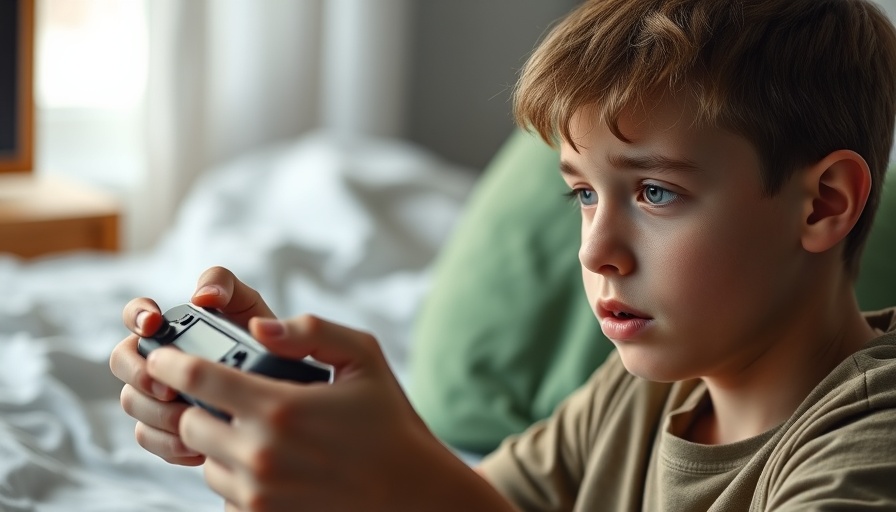
A Deep Dive into Teen Gaming Addiction
Video games have long captivated audiences, from the pixelated realms of Pong to the expansive landscapes of Fortnite. Yet, for some adolescents, this passion morphs into a relentless obsession, leading to what health professionals recognize as gaming disorder. Recent research suggests that this addiction may be more intricately linked to preexisting mental health challenges than the games themselves.
The Research Behind Gaming Addiction
A team led by brain scientists Kylie Falcione and René Weber at UC Santa Barbara has brought new insights into understanding gaming addiction through their study published in JAMA Network Open. Their work utilized extensive data from the National Institutes of Health’s (NIH) Adolescent Brain Cognitive Development Study, tracking 4,289 adolescents from 2018 to 2022. This rigorous study aimed to identify the fundamental triggers behind gaming disorders.
Falcione reveals, "The kids who were already having depressive symptoms and social issues were more likely to get stuck in a cycle of problematic gaming." This statement underscores a significant finding: for many young gamers, excessive screen time isn't merely a distraction; it's a means of coping with deeper emotional struggles.
The Cycle of Mental Health and Gaming
Understanding the cycle between mental health and gaming addiction is crucial. Researchers found that preexisting conditions such as anxiety and depression can compound with gaming habits, creating a “downward spiral.” As Falcione states, “For these kids, gaming had become an unhealthy coping mechanism.” Here, gaming transcends mere enjoyment, transforming into a substitute for social interaction and emotional processing.
Why Awareness Matters
For parents, recognizing the signs of gaming withdrawal—irritability, isolation, neglect of responsibilities—can help in intervening early. Understanding that these manifestations could be rooted in untreated mental health issues is vital for effective support. Prevention becomes possible only when we grasp that gaming addiction may be symptomatic of larger issues at play.
Fostering open communication within families about mental health can mitigate the risks of addiction. Parents can approach conversations by expressing concerns, emphasizing emotional well-being over gaming habits.
Strategies for Parents
As parents, it’s crucial to establish healthy gaming habits within the household. Here are actionable steps to consider:
- Set Screen Time Limits: Establish daily gaming limits to prevent excessive use and encourage a balanced lifestyle.
- Encourage Device-Free Activities: Promote pursuits such as sports, arts, or social gatherings to enhance real-world connections.
- Educate About Mental Health: Open discussions surrounding mental health can normalize feelings and reduce stigma, allowing teens to express themselves without fear.
- Monitor Gaming Content: Understanding the games your children play helps identify potential issues. Use parental control tools if necessary.
- Seek Professional Help: If signs of distress or withdrawal persist, don’t hesitate to consult with a mental health professional.
The Road Ahead: What This Research Means for Parents
Falcione and Weber's findings may spark a shift in how healthcare professionals approach treatment for gaming addiction. By focusing on the underlying mental health problems rather than dismissing gaming as the enemy, tailored strategies can be devised for each individual. As parents, this research empowers you with knowledge, opening paths to emotional support while promoting healthier lifestyle choices.
Wrap-Up: A Proactive Approach to Gaming
In summary, while gaming can be a worthwhile pastime, understanding its potential pitfalls is essential for fostering a healthy relationship with technology. The key is balance—encouraging enjoyment within gaming while remaining vigilant about emotional health. By being informed and proactive, parents can help their children navigate the complex landscape of gaming and mental well-being, ensuring they thrive both online and offline.
Take charge of your child’s gaming habits today. Engage in conversations about mental health and develop a proactive approach to screen time. Together, we can encourage a balanced approach to technology that supports emotional and social growth.
 Add Row
Add Row  Add
Add 




Write A Comment